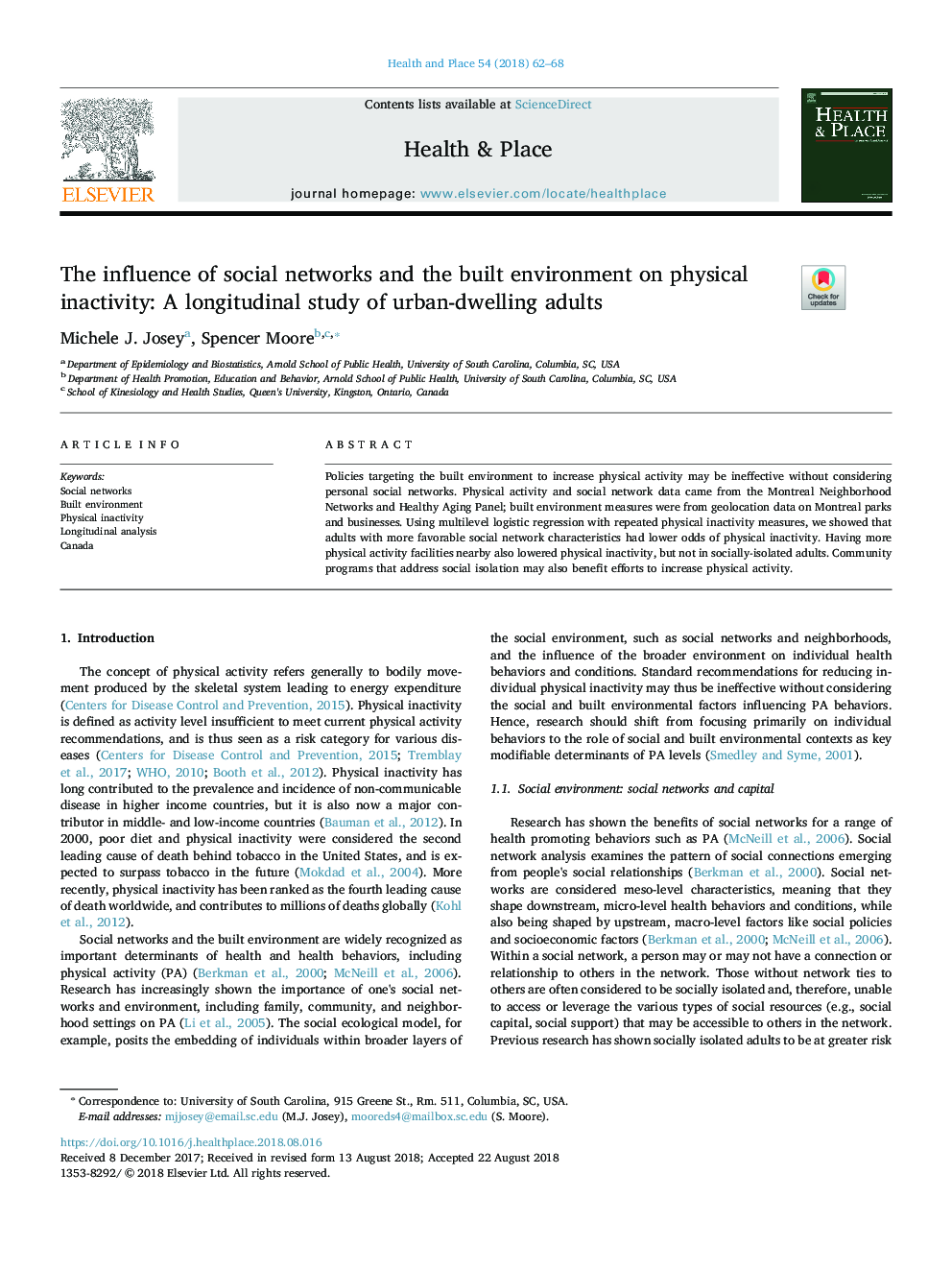| Article ID | Journal | Published Year | Pages | File Type |
|---|---|---|---|---|
| 11029744 | Health & Place | 2018 | 7 Pages |
Abstract
Policies targeting the built environment to increase physical activity may be ineffective without considering personal social networks. Physical activity and social network data came from the Montreal Neighborhood Networks and Healthy Aging Panel; built environment measures were from geolocation data on Montreal parks and businesses. Using multilevel logistic regression with repeated physical inactivity measures, we showed that adults with more favorable social network characteristics had lower odds of physical inactivity. Having more physical activity facilities nearby also lowered physical inactivity, but not in socially-isolated adults. Community programs that address social isolation may also benefit efforts to increase physical activity.
Related Topics
Health Sciences
Medicine and Dentistry
Public Health and Health Policy
Authors
Michele J. Josey, Spencer Moore,
